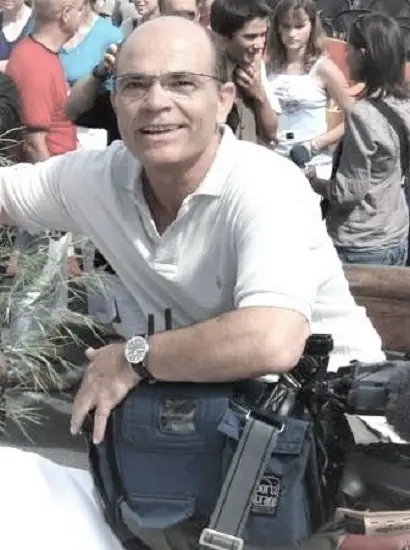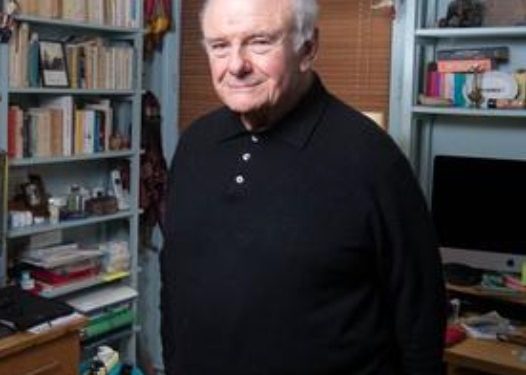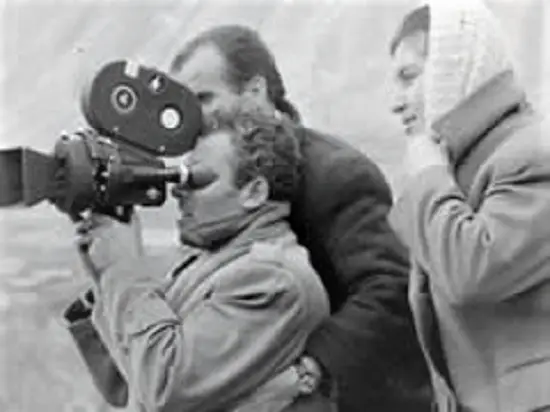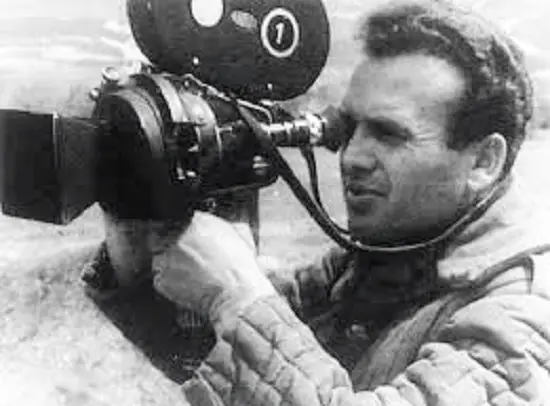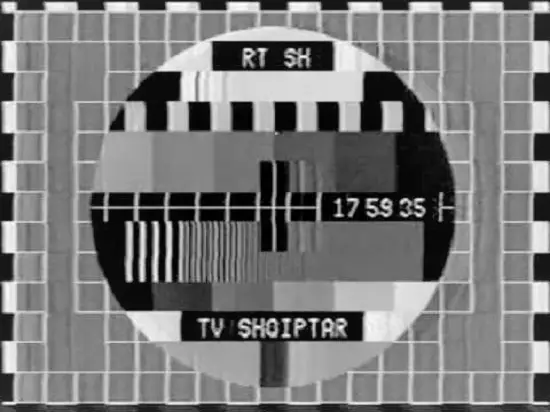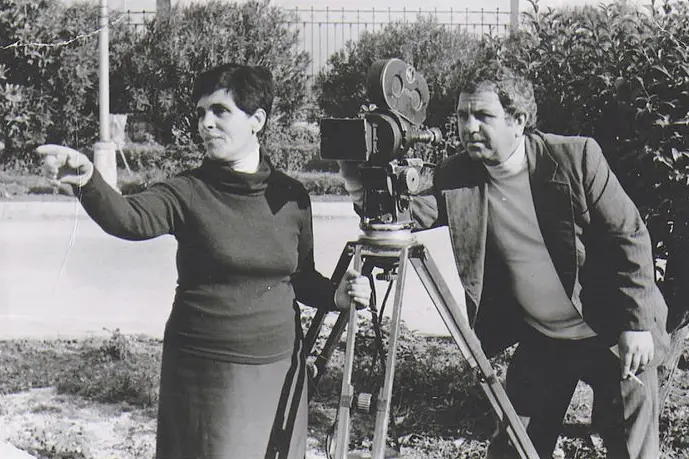By Vasil Qesari
Part fourteen
Memorie.al/ The overthrow of the great totalitarian edifice in Albania would leave behind, not only the change of the system, accompanied by lots of hopes, mirages and cries of happiness but, unfortunately, also many wounds, dramas, victims, dust, milk and disappointments from the most different. Ten years and more after that event, which deeply shook society, completely overturning many previous codes, rules and concepts, people still continue to ask themselves such questions as: What really happened in society Albanian, during the last 50 years of the dictatorship? How was it possible that the system managed to warp everything? Why did people accept it? What was the totalitarian logic of the transformation of society and the individual? How were the structures of totalitarian mechanisms conceived and functioning: propaganda, secret police and the exercise of the ideology of terror? How did it happen that among all the communist countries of Eastern Europe, Albania was considered an exception or a special case? Why did Enver Hoxha remain blindly, fanatically loyal to Stalin until the end, turning the country into a prison where violence, fear and purges continued until the end of the 80s? Why was the country so insanely isolated, locking people up between bunkers and barbed wire? Why, then, did all the above phenomena happen…?! The book “Post-scriptum for Dictatorship” does not claim to provide definitive answers to the above questions, or the complexity of the reasons that brought and maintained the totalitarian power in Albania. Nor is it a complete, deep and comprehensive fresco of the life and suffering that people experienced during that system. Its author, perhaps, has the merit that together with the retrospective view of the totalitarian period as well as the zeal of a passionate analyst, he has tried to turn his head back once again, to give not only his personal memories and opinions, but also to return once again to the vision of that era with the simple philosophy of preserving the Memory and supporting the Appeal to never forget the well-known maxim, that…the corpse’s nails and hair continue to grow even after death! Ten years or more after the great revolution, the book in question has current value and we hope it will be appreciated by the reader because, as an Albanian researcher also says… the greatest evil that can happen to a people comes when he fails to analyze his own past. An amnesic people are forced to be constantly neuropathic and repeat their painful experiences…!
THE BETRAYAL OF JEAN BERTOLINO
The two prominent modern philosophers of totalitarian ideologies, Hannah Arendt and George Orwell, in many of their works have analyzed, among other things, the ways in which these ideologies manipulate facts and reality, as well as their endless possibilities for Falsification of True. A typical example of the falsification of the reality of the truth in Stalinist Albania was the propaganda aimed at the opinion abroad.
It, like the internal propaganda, had the form of a big machine which consisted of the endless broadcasts of Radio-Tirana in dozens of foreign languages, the daily bulletins of ATSH, the emphatic articles and the typical propaganda photographs of the Albania magazine e Re (organ of the Albanian Committee for Relations with the Foreign World), etc. But, this was nothing, if we take into account what has been spent on the publication and distribution around the world of the materials of the Party and the works of Enver Hoxha, as well as on the support, financing and activation of dozens and dozens of Marxist-Leninist militants who, organized in small groups, associations and parties, tirelessly boasted about the Albanian ideological system and reality.
… Jean Bertolino, activist of the student revolts of May ’68, of the French Marxist-Leninist groups, was a member of the ranks of the militants, nostalgic supporters of the “lighting beacon in Europe”, at that time. Arriving for the first time in Albania in 1971, Jean Bertolino, among other things, was enthusiastic when he saw that every one of its citizens, through lightning bolts, could openly criticize without fear all foreign influences and any behavior against morality communist.
After three months, he came again to shoot a TV report. Traversing the route previously prepared by the authorities, wherever he went, he met and talked with people united around a single ideal: the construction of a new, just and prosperous society. The boy Bertolino, exalted by the Eden of world Marxism, did not seek to see or discover further than what his companions showed him.
He addressed the subjects desired by them and, in the end; the television documentary in question was described by the Leadership as quite realistic and benevolent. Thus, with the realization of that positive film, Jean Bertolino successfully passed the first test of faith. This means differently that, from now on, he was considered welcome and was part of the ranks of the chosen friends of the Party…! After 5 years, Jean Bertolino again received consent and approval for the realization of another documentary film about Albania. (At that time, reports and articles from foreign reporters or journalists were non-existent. In some special cases, Enver Hoxha himself gave the visa for the entry of a rare western journalist). Meanwhile, years have passed since the first visit.
Changes had apparently occurred in Bertolino’s worldview and beliefs. He was no longer the former boy of the Latin Quartier barricades, with his head full of utopian dreams. Now, he seeks to observe and judge the facts and events more calmly, aiming to enter their essence and not to be exalted simply by their external appearance.
“After a long absence, in 1976 I came back to Tirana” – he says, in an article published many years later, in the newspaper Le Monde – “The purpose of the trip was to prepare a script for another film, anticipated for the following year. For this, among other things, I asked my companions to have with me again, Edmond Tupen. So, the same translator I had the first time. This is impossible, they answered me. He is no longer in Tirana.
Then, they explained to me that there was a large staff turnover in the country, and Edmondi, who was assigned to work as a teacher in a village in Elbasan. I was stunned by surprise. How was it possible that a capable university professor was assigned to work in a village school…? But, my surprise became even greater when, one day as we drove by the area where they had taken him, despite my insistence, those who accompanied me told me that the meeting with him could not take place. During my trip to Albania, I felt that I was surrounded by people, who always tried to hide ‘something’ from me. Well, that ‘something’, which was impossible not to notice. All over the country, wherever you looked, you could only see construction sites for bunkers”.
Accompanied by a cameraman and equipped with the precious visas granted by Javer Malo himself, the Albanian ambassador in Paris, he was received in Rinas by officials of the Albanian Committee for Relations with the Foreign World. The latter had taken the measures for everything that had to do with the making of the film. So, my friend from France, there was no need to be tired. Everything is ready. The subject, the script, the people who would accompany him, the shooting locations, etc. Everything. All that remained was for Comrade Bertolino and his cameraman to set up the camera tripod and microphones, to start work. To begin the story about the victories of Albania, the construction of socialism, the creation of the new man, his transformative work…!
Indeed, Bertolino’s goal was to create an informative documentary, but at the same time, his idea was also to reflect everything as simply and reliably as possible. He considered this request necessary and interesting, not only for himself but also for all French viewers. So you decided to do something completely different from the first film. To enter the interior of life. To talk about the spiritual world of people. To show how they worked and lived. To know closely the difficulties, the struggle and the efforts in their daily life. To enter their houses. To see where they lived, how they spent their free time, etc.
Such a view of life, for the Albanian authorities, is not only exaggerated but also unnecessary. The order from above, from before, had been clear: he would be given as much as he needed. This is the reason why, when Bertolino’s companions learned about the claims about the making of the film, they were very embarrassed. They did not agree at all with the idea and the point of view of how he saw the subject of his upcoming documentary. Why, they said, did Comrade Bertolino want to go so deep and kill his mind so much? Why complicate things? After all, why should he get tired when they had prepared everything for him, carefully and as it should be?
Meanwhile, Bertolino insists on his. According to him, he wants to make a real and reliable film about Albania. Despite the fact that the country is poor. It’s just that the people are poorly dressed and the children are weak and rickety. In his opinion, those things for the French viewer were not surprising, because poverty was present everywhere in the world. For him, it was important that the events were presented realistically, clearly explained and shown as they were. No tricks or embellishments. No euphoria. Freely and without prejudice.
But, for his censors, that view of reality was not only unacceptable, but also scandalous. In Albania, poverty does not exist at all. The country lives in abundance. People are happy. These and only these should be reflected in the film! – They insist, categorically…!
Bertolino fights closely. He understands that he must make concessions, otherwise his project will fail. He knows well the meaning of the Albanian proverb that, “you don’t hit the wall with your head”. Finally, with regret, he agrees and starts shooting, according to the pre-prepared script and the orders given from above. This would be the beginning of an adventure full of tensions, quarrels, disagreements and tragic-comic episodes, which would consequently play a great transforming role, not only in his considerations about the ALP and Albanian socialism, but also in his worldview and his leftist ideas.
“One day – says Jean Bertolino – we were going to film the exit of workers from work at the ‘Petro Papi’ factory in Korça. We were ready to start filming, when one of our companions, Vehbiu, as had happened many times before, appeared in front of the camera raising his hands: Stop, stop the camera! He ordered worriedly. Why? What happened? – I asked nervously.
Vehbi made a grimace and pointed to a cart pulled by two horses, which was coming towards the square in front of the factory.
Well, what to be alarmed about, here? – I intervened – If there are horse-drawn carriages in Albania, there is nothing wrong. Why should it be hidden? You don’t have to have complexes for such looks. It’s not worth it…! The other attendant, Misto, did not like the words and tone I used at all. Exasperated, he intervened, saying: You are mistaken!… We have no complexes, Comrade Bertolino! But, that cart is not expected to be in this scene. She is out of the program. If you want to film it, you should have made the request earlier.
Demoralized, I gave up and answered in despair: OK! Then empty the whole place, so we can only film the workers getting on the bus, in a completely deserted square. But my suggestion did not please the attendants who asked to postpone the shooting of that scene. Yes, why, for what reason? – I asked surprised. Because the workers’ bus is out of order. It is unwashed…! In fact, the bus was dusty, but so were all the buses I had seen up until then in Albania.
Another day, according to the script, we had to film a dialogue between two workers who were the main characters of our documentary. The scene took place right in front of the stairs of the palace where they lived. Before we started filming, our companion, Vehbiu, took care of removing all the children who were playing in front of the palace. In fact, they were normal children, neither clean nor dirty. Chuna and Goca, like everywhere in the working-class towns: smiles, turbans that gave life to the decor. For a few minutes, after shouts and threats, the square was “cleaned” and remained silent and deserted. Now we are okay. You can start… – vented Vehbiu, taking a deep and happy breath. Are you ready? – I asked the workers. We are ready! – They answered. Peace! Engine…!
The first fifteen seconds of filming passed without any incident, but then, as always, Vehbi appeared in front of the camera again, placing his hand on the target. What happened? An itinerant seller of ice cream had suddenly come out of the street and entered the ‘frame’, ringing a bell and calling: Ice cream! Come on, ice cream…!
Vehbi, confused, ran towards him, shouting: Stop… Stop… Where are you, brother…? And yes, this was the climax…! I couldn’t help myself. I lost control and started screaming as loud as I could. The residents of the palace came out on the balconies, curious to see what was happening. I do not understand your behavior at all! – Mistoja muttered next to me, very worried.
– Why are you, Comrade Bertolino, so interested in filming unwashed children and street ice cream vendors…? Well, after all, – I snapped at him, blushing with anger – what’s wrong here? These children are like all the children of the world, neither better nor worse. And, in addition, we also have such street ice cream sellers in France.
Then, Mistoja found the opportunity to advise me with irony: This is exactly what I mean! You should not film things that are in you. Better film those things you don’t have…! You know very well what’s going on – I replied as if I didn’t understand anything – Whenever I want to film scenes that are different from ours, you rush to stop me in all kinds of ways.
Okay! That’s right! – Agreed Mistoja – Well, we do this because we see that you are only interested in things that belong to the past. Why do you, Comrade Bertolino, look at Albania from this point of view? Why don’t you look to the future…?
You were right under my nose and, for a moment, I thought of leaving everything in between and getting on the plane to go back to Paris. Relations with my companions – continues his story, Jean Bertolino – passed according to the occasion, sometimes sunny days, and other times, with dark skies full of flashes of lightning.
In the evenings or at lunches and dinners, the conversations often went beyond the topic of work, and to some extent we even managed to understand each other. While, during the filming, the tension between us was constantly at its peak, I hated their position as a ruthless censor. These relationships, which were becoming more and more false and insincere, not only made me think, but also shocked me deeply in my soul. Our former friendship was turning into disagreements and contradictions.
My companions, with their blind stubbornness, never managed to understand that my goal was to make a film as reliable as possible about Albania. Not a critical film, or worse, a funny film. At that time, (and I don’t have to hide this), I saw with enthusiasm the experience of Albania and had illusions about it. But, nevertheless, my tendency was to present reality as it was. That, what I would achieve, would reflect that place as reliably as possible.
I didn’t lack the opportunities I wanted, with the footage shot, to do tricks and present an Albania as ‘positive’ as possible without any negative side. But my companions, Mistoja and others forced me to film only those things that they wanted and that were programmed. They forgot that, acting in that way, they were harming their country by turning themselves into grotesque people.
At the end of my ‘adventure’ in Albania, I finally realized that the ideas and the way I wanted to make the film in question had not only raised objections, but had caused me to be considered a suspicious person. In fact, I realized this little by little, over time. And this, for me, was something quite good, because it finally opened my eyes. If the party leaders had shown faith in me, perhaps, I would have continued my naive and enthusiastic “song”.
But, being precisely my ‘friends’, those who, without holding back to present the situation in the country as perfectly as possible, made me see the truth which, until then, was hidden for me…
Bertolino’s film about Albania, broadcast by the official French television, caused fury and deep hatred in the ranks of the Albanian leadership. It was described as a falsification and deliberate extraction of socialist reality, a provocation against the life and work of a heroic people. After that, of course, Bertolino was called a traitor, enemy and agent of the western bourgeoisie and, of course, he was banned from entering Albania once and for all. Memorie.al




